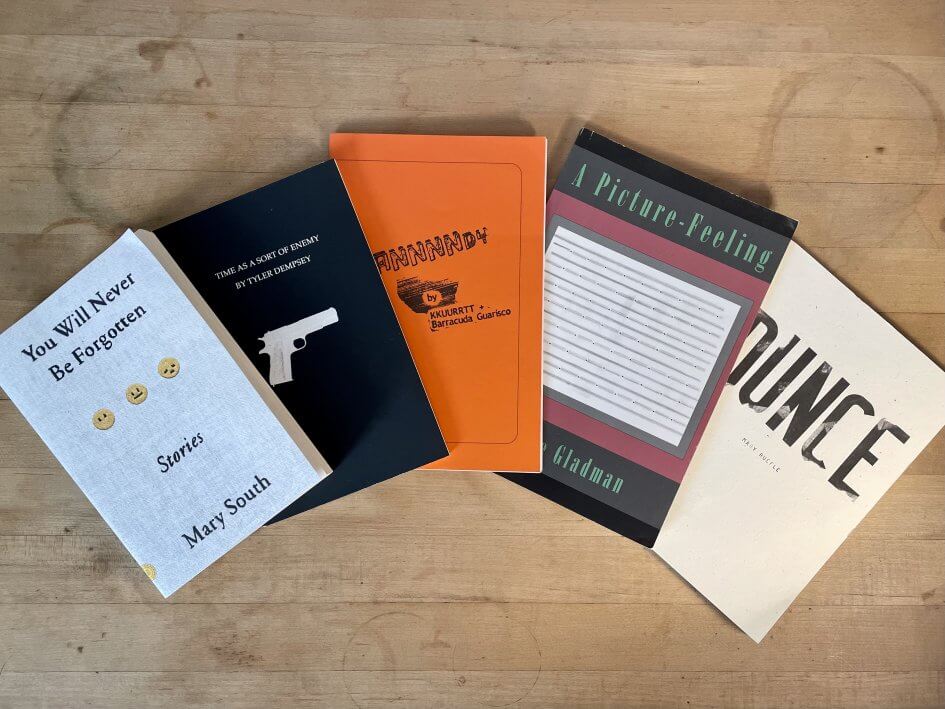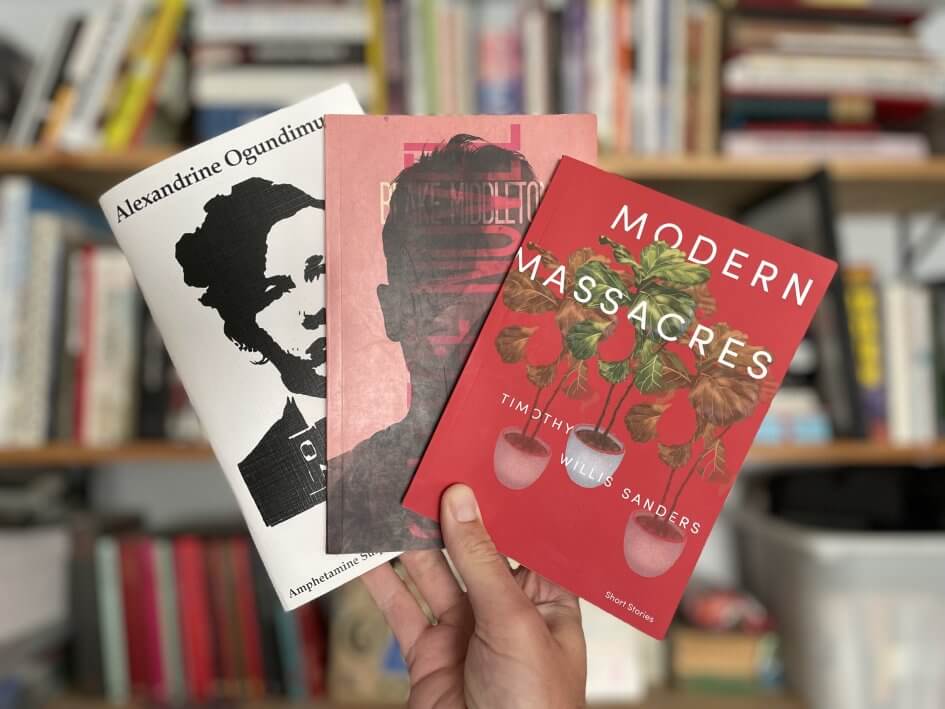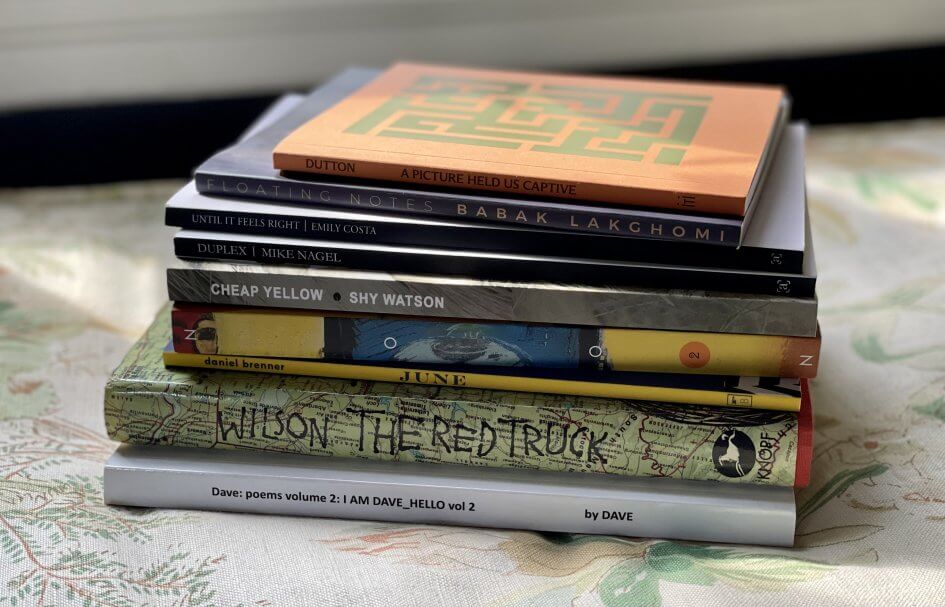I’ll take a Tony Hoagland and a coke: August book reviews

These are the books I read in the month of August, 2022—
Inferno by Eileen Myles
After listening to Myles’ appearance on 1storypod, I felt the poverty of my exposure reflected in my unfamiliarity with their work and asked Sean which book to read first and he said this one. I liked it a lot, and thought it was funny to project onto my interpretation of the book the similarities between it and Fuccboi in the narrator’s drive to be a sort of pure, clarified, and serious artist, all while (as Sean might put it) scrappin’. It felt jumbled (deliberately, sure) and long, which are not things I would say of Sean’s book.
You Will Never Be Forgotten by Mary South
One of these was a New Yorker story, and the rest feel like they’re trying to be. I don’t mean that as a dig, and admittedly they lean a bit more “speculative” than the average NYer story I’ve read, but they’re pretty neat and clean, timely, and observationally critical of contemporary culture. In some ways this book also feels like the most saleable possible package of stories a writer coming out of an MFA with an intent to publish might hope to have. It’s also one of several books I’ve read recently that’s deeply indebted to Diane Williams, though the lineage here is less evident than in Ashton Politanoff’s and Kathryn Scanlan’s books. The language is still very careful and calculatedly askew, but there’s maybe less emphasis on economy. It’s clear that Mary South is a very good writer, and I’m eager to see what she writes next.
Time as a Sort of Enemy by Tyler Dempsey
First I need to sing Dempsey’s praises a bit. In the last couple of years that I’ve been involved at XRAY, he’s been an unbelievably diligent and reliable reader of submissions. I think all of his reading has crystallized his taste, and I admire the way he applies that sensibility to his writing. Here’s a phrase that came to mind while I read this tiny collection: Lonesome Horny West. Its breathless, borderline misuse of commas and dashes invites audible parsing, maybe somewhat like Gaddis’s J R (which I liked but never finished). The book has a nice cadence of reflective, punchy endings. I was extremely amused by the image of burglars stealing frozen hams.
SCANNNNDY by KKUURRTT and Barracuda Guarsico
I sometimes get bogged down when reading collaborative works in trying to attribute units of language, themes, and arcs to a contributing author, and I was glad not to be tempted into doing that here. I have the Limited Halloween Edition, which is orange, and the photo collages printed on transparency sheets are a neat, higher-end feature to insert into what is otherwise a pretty DIY-seeming stapled pamphlet. I don’t have much familiarity with the referential touchpoints in it, but I really like the playful approach to poetry here. Sometimes people say “no matter what you do, you should have fun when you’re writing” and then I’ll read something where it’s clear someone had fun and I’ll think “ok, maybe don’t have that kind of fun while writing.” I think more people should have this kind of fun when writing.
A Picture-Feeling by Renee Gladman
There’s something clumsy and blunt about the word “defamiliarization,” which I guess is why I am reluctant to use it despite it being more or less a big part of what happens so successfully in this book and in Gladman’s other work. Writers often obscure things for some reason (or no reason?), and it becomes exhausting work for me to latch onto anything and feel motivated to continue deciphering. I think Gladman is a master of holding things at arm’s length, just within reach, continually rewarding me for grasping.
There Has Been a Murder by Evan Nicholls, Evan Williams, and Benjamin Niespodziany
I like all these guys a lot. They do fun hybrid/interdisciplinary-seeming stuff, and it’s all at a bare minimum tinged with greatness. While one of the pieces here contains my first name 291 times, the first piece is the strongest, and I recommend everyone read it. The rest of the book is also a worthwhile prismatic exploration of the concept behind the chap, and you’ll probably get through it quickly and easily after the first one hooks you. It will hook you. If it doesn’t, you and me probably don’t like much of the same stuff.
Dunce by Mary Ruefle
Mary Ruefle gave an excellent pre-recorded virtual talk about erasure at my last graduate school residency, which was remote. It would have been awesome to see her in person. There’s a rumor that it’s pretty easy to stumble upon Mary Ruefle swimming in a certain pond near campus, but I can’t confirm it, and don’t recommend blowing up her spot. What would be the point? In fact, I’m suddenly feeling protective—I probably shouldn’t have said anything—please stay away from any body of water you suspect Mary Ruefle may frequent unless she specifically invites you. Here are some phrases I liked from this book:
“a great zoom of sadness”
“a loose tooth going back in time”
“I saw a surfer drink a wuthering wave”
“So much is missing / from the middle of the day! / Despite my best efforts / at individual enjoyment”
What Narcissism Means to Me by Tony Hoagland
I can’t remember how this got into my pile. When I search on Twitter for references to Hoagland with the “From people I follow” filter, there are a lot of appearances from people I like. I sent the mj slender man fan club 🏀 groupchat the best poem in the book (“Social Life,” about being quiet/antisocial/drawn to nature at parties) as well as the worst (“Rap Music,” about, uh, being racist, I guess). Graham, a legit and unironic galaxy brain when it comes to poetry said “like a lot of poetry like this, it’s good when there’s a big sweeping image boosted by hurried breathless lines, and it’s bad when the language is both too formal or informal in a way that is winking rather than realistic dialogue.” Zac said some thoughtful stuff about guilt and reflection. Troy said “I like the guy’s name. Sounda like food. I’ll take a Tony Hoagland and a coke.”
That All Shall Be Saved: Heaven, Hell, and Universal Salvation by David Bentley Hart
I sent a barely comprehensible gigachads-on-computers meme about theology to Jordan Castro/his digital content team and he/they said “Amen” and “i listened to a p book book about that” with that being how everyone’s probably going to heaven. The book was maybe even less comprehensible to me than the meme, but I enjoyed getting the sense that more Christians are dismissing eternal damnation fetishism. I was surprised to find myself bristling against simple assertions of truth, as well as the author calling things “absurd” and “ridiculous” even when I agreed with him.








